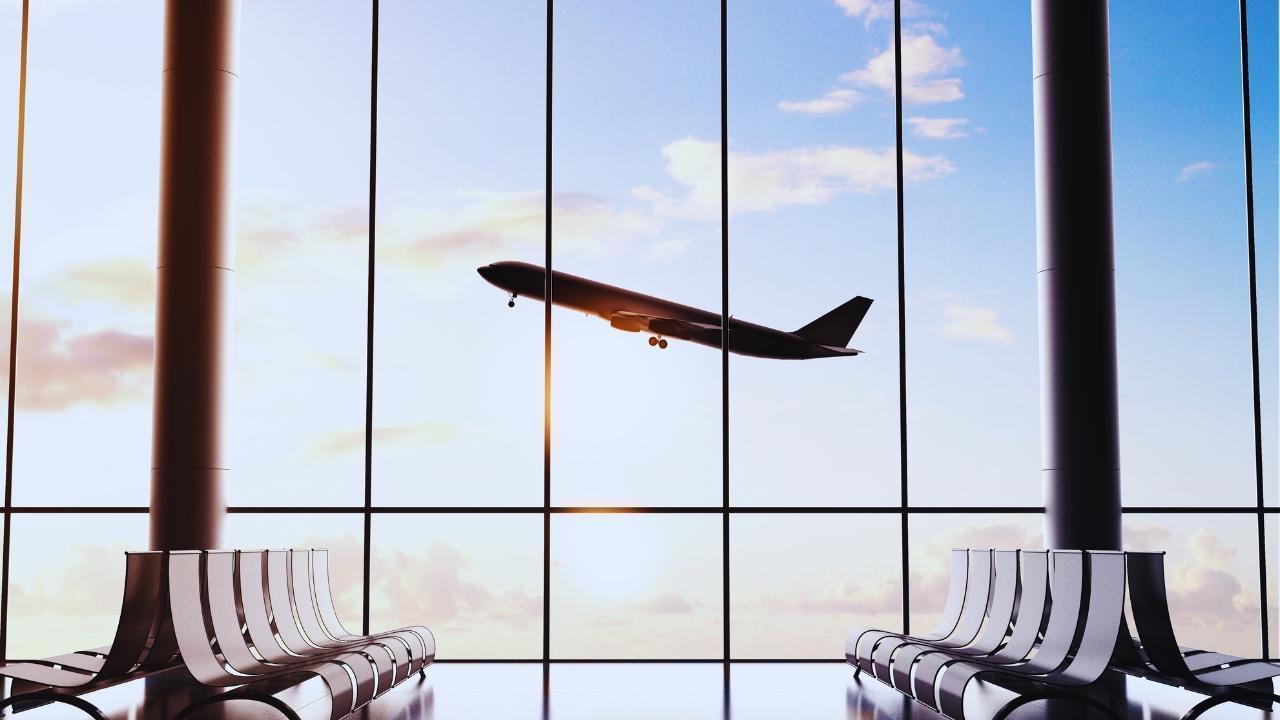You have not yet added any article to your bookmarks!

Join 10k+ people to get notified about new posts, news and tips.
Do not worry we don't spam!

Post by : Anis Farhan
Asian airlines are no longer just competing on ticket prices or basic service quality. They are stepping into a new phase where passenger experience, digital transformation, and eco-conscious initiatives are at the core of their strategies. Carriers from Singapore, Japan, South Korea, and the Middle East are constantly experimenting with futuristic cabin layouts, in-flight services, and even ground experiences that set them apart globally. The pandemic accelerated some of these changes, but now, airlines are focusing on how to turn travel into an experience worth remembering rather than just a means to reach a destination.
For years, first-class suites were seen as the pinnacle of air travel luxury. However, Asian airlines are moving beyond this by creating ultra-private cabins with features that resemble five-star hotel rooms. Carriers like Singapore Airlines, All Nippon Airways, and Emirates are rolling out personalized suites with sliding doors, plush bedding, and even the ability to customize lighting and sound systems to match the passenger’s mood. This concept appeals not just to elite business travelers but also to leisure passengers who view the journey as part of their holiday.
The growing demand for privacy and personalized luxury experiences is pushing airlines to invest in interiors that resemble boutique hotels in the sky. The trend shows how the perception of luxury is evolving from merely high-end dining and service to creating a personalized sanctuary in the air.
Artificial intelligence, machine learning, and biometrics are redefining how passengers move through airports and interact during their flights. Asian hubs are leading in smart airport initiatives where facial recognition replaces boarding passes, and AI chatbots provide real-time updates. Airlines are also deploying machine learning to tailor in-flight entertainment and food options to individual preferences.
Onboard, smart cabins are becoming a reality, with sensors adjusting temperature, lighting, and even seating ergonomics to improve passenger comfort. Wi-Fi connectivity, once considered a luxury, is now a basic expectation, and Asian carriers are racing to provide the fastest in-flight internet possible. This integration of tech ensures that passengers remain connected and catered to, blurring the line between ground and airborne digital experiences.
One of the most remarkable shifts in Asian aviation is the focus on sustainable travel. Airlines are experimenting with sustainable aviation fuels (SAF), carbon offset programs, and lightweight aircraft designs to reduce emissions. Carriers in Japan and South Korea are also collaborating with research institutions to test hydrogen-powered planes and other future-ready technologies.
Even small steps, like reducing single-use plastics and investing in eco-friendly catering, are becoming a part of standard airline practices. As passengers become more environmentally conscious, Asian airlines are positioning themselves as pioneers in green aviation, which also boosts their global reputation.
Travel fatigue is a major concern, especially on long-haul routes common in Asia. To counter this, airlines are incorporating wellness into the passenger journey. Expect cabins with circadian lighting that adapts to time zones, noise-canceling environments, and menus curated to support hydration and energy. Some carriers are partnering with wellness brands to offer meditation guides, skincare kits, and even wearable health trackers during flights.
These changes signal a broader recognition that passenger well-being is directly tied to loyalty. Instead of viewing wellness as an add-on, airlines are embedding it into every stage of travel, ensuring passengers feel refreshed upon arrival.
It is not just the skies that are changing; airports are also being reinvented as lifestyle hubs. From lounges resembling luxury spas to AI-driven baggage handling systems, the focus is on making ground experiences as memorable as the flight itself. Asian mega-hubs like Changi in Singapore and Incheon in Seoul are setting new benchmarks by offering everything from indoor waterfalls to VR gaming zones.
By creating seamless journeys from check-in to arrival, airlines ensure that passengers view them not as transport providers but as holistic travel partners. The integration of luxury, tech, and sustainability at every stage of the journey builds strong brand loyalty and differentiates Asian carriers from their Western counterparts.
The global aviation industry is intensely competitive, but Asian airlines have found ways to set themselves apart. Their emphasis on cultural hospitality, combined with bold investments in innovation, creates a unique travel ecosystem. For instance, Japan’s attention to detail, Singapore’s efficiency, and the Middle East’s extravagance all blend into a regional standard that consistently outpaces much of Europe and North America.
This competitive spirit ensures that passengers flying with Asian airlines are not just choosing a carrier but buying into an entire experience. It also raises the bar for the global industry, forcing airlines across the world to innovate or risk losing relevance.
Looking ahead, the reinvention of air travel in Asia is only going to intensify. The next decade could see fully autonomous aircraft, hyper-personalized AI-driven services, and greater integration of sustainable technologies. Asian airlines, given their track record of adopting innovation faster than most, are poised to remain at the forefront of these developments.
The ultimate goal is not just to transport passengers but to redefine what it means to travel. With wellness, sustainability, and technology shaping the journey, the Asian airline industry is creating a model that others will likely follow.
This article is based on current trends in the aviation industry. Developments may evolve with new technological, economic, or regulatory changes in the coming years.










Two Telangana Women Die in California Road Accident, Families Seek Help
Two Telangana women pursuing Master's in the US died in a tragic California crash. Families urge gov

Ranveer Singh’s Dhurandhar Roars Past ₹1100 Cr Worldwide
Ranveer Singh’s Dhurandhar stays unstoppable in week four, crossing ₹1100 crore globally and overtak

Asian Stocks Surge as Dollar Dips, Silver Hits $80 Amid Rate Cut Hopes
Asian markets rally to six-week highs while silver breaks $80, driven by Federal Reserve rate cut ex

Balendra Shah Joins Rastriya Swatantra Party Ahead of Nepal Polls
Kathmandu Mayor Balendra Shah allies with Rastriya Swatantra Party, led by Rabi Lamichhane, to chall

Australia launches review of law enforcement after Bondi shooting
Australia begins an independent review of law enforcement actions and laws after the Bondi mass shoo

Akshaye Khanna exits Drishyam 3; Jaideep Ahlawat steps in fast
Producer confirms Jaideep Ahlawat replaces Akshaye Khanna in Drishyam 3 after actor’s sudden exit ov